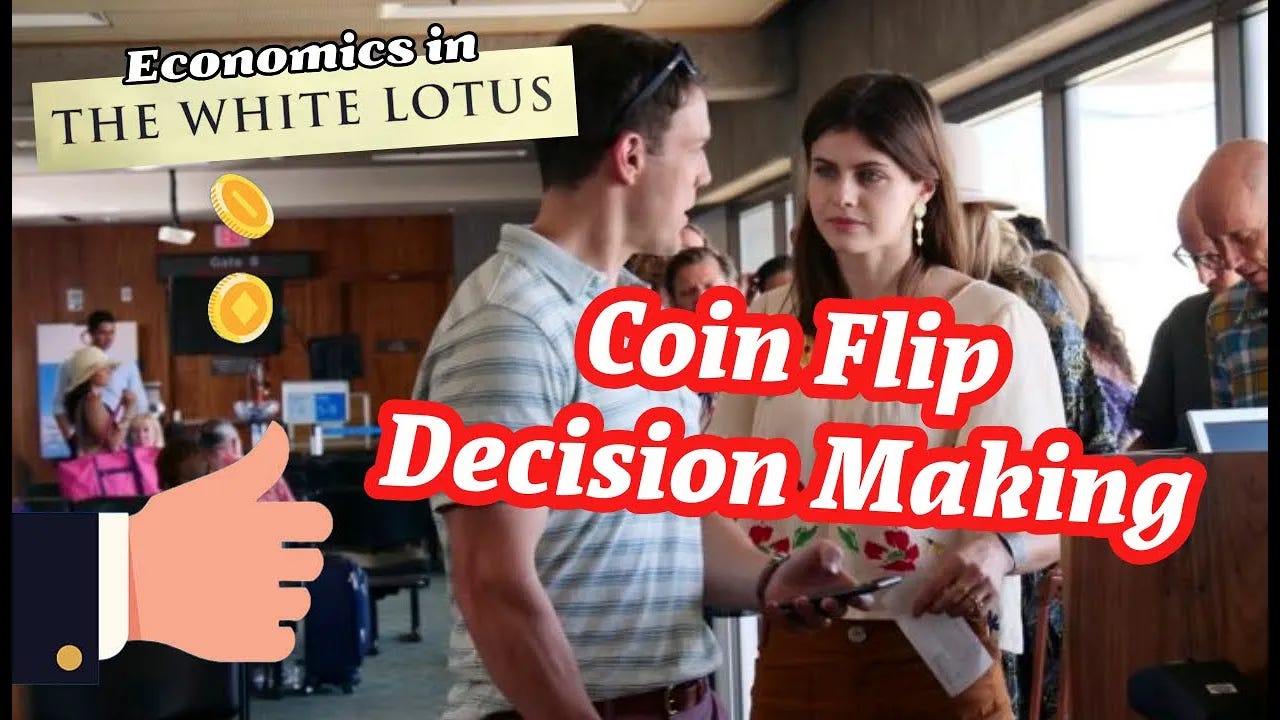The Economics of Big Decisions: Lessons from The White Lotus
Rachel and Quinn make major decisions
The White Lotus just ended season 3, but the economic lessons are still there. The question today: How do we make life-changing decisions? Should we overanalyze every possible outcome, or is there a point where a simple coin flip might actually be the best way forward?
In The White Lotus Season 1, we see two strikingly different decisions unfold: Rachel, newly married to Shane, wrestles with whether she’s made a mistake in committing to him, while Quinn, a disconnected teenager, suddenly decides to abandon his family and stay in Hawaii. Both choices tell us something profound about decision-making, regret, and the human tendency to second-guess.
Rachel: The Fear of Finality
Rachel's decision is a textbook case of decision paralysis. She recognizes that staying with Shane means resigning herself to a life where she is treated as a "plus one," yet leaving would mean undoing a socially and personally significant commitment. Behavioral economics suggests that people often delay irreversible decisions, even when they know change is necessary. Economist Steven Levitt's research supports this: his study on major life decisions found that when people were unsure about making a change, those who took the leap tended to be happier in the long run. So why does Rachel stay? We don’t know, but by staying she still has options of leaving later.
Quinn: The Power of Belonging
On the other hand, Quinn’s choice appears impulsive, but in many ways, it makes sense. At the start of the season, he is glued to his screens, disengaged from both his family and his surroundings. Forced outside his comfort zone, he discovers a new sense of purpose among a group of Hawaiian rowers. Unlike Rachel, who is burdened by societal expectations, Quinn finds clarity in an emotional and almost primal sense of belonging. This aligns with research on happiness and fulfillment: people tend to thrive when they find strong social connections and meaningful activities. While his decision might seem rash, it is guided by an intuitive understanding of what will make him happy.
Should You Flip a Coin on Big Decisions?
Levitt's research on decision-making introduces a provocative idea: when people are truly torn about a decision, they are often happier when they embrace change. His study asked participants to flip a coin to decide on major life choices—quitting a job, ending a relationship, or making a big move. Those who let the coin decide were more likely to follow through and, interestingly, reported greater satisfaction afterward.
Of course, not every decision should be left to chance, but the study reveals a common bias: we tend to overestimate the risks of change while underestimating the costs of staying the same. Rachel stays because she fears regret, even though all signs point to long-term dissatisfaction. Quinn embraces change because he feels the pull of something more fulfilling.
For More, Watch the Video!
I’m once again joined by Michael Enz, and we have a great conversation about behavioral economics and decision making.


